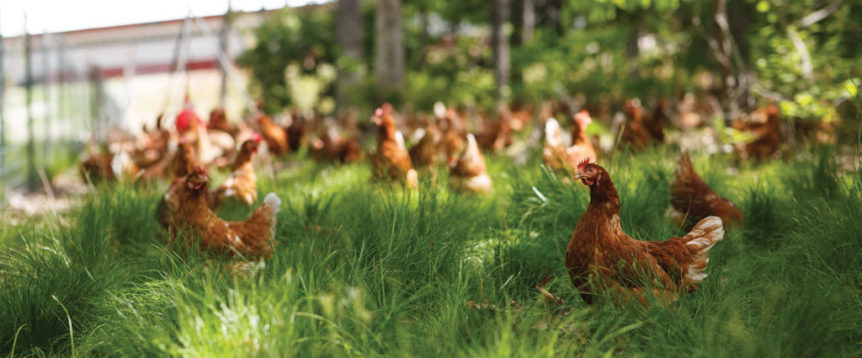
In 2019, Wedel decided to start his own pasture-raised egg farm, Wild Wood Acres, and joined with Vital Farms, which partners with more than 200 farms to bring ethically produced food to the table. “It’s interesting to see our barn in comparison to what I grew up with; I was used to seeing chickens inside their whole life,” says Wedel, whose farm sits on 50 acres with the barn in the center. There, his 20,000 chickens move through a pasture rotation, which allows them to forage on a section of the land, giving other parcels time to rejuvenate naturally without pesticides or herbicides. Hens spend the day in the pasture and only come in at night to avoid being eaten by natural predators.
Wedel’s farm is situated in what is known as the pasture belt, a region of the U.S. with warmer weather and mild winters that allows hens to have outdoor access year-round. All Vital Farms eggs are produced by pasture-raised hens, meaning every hen gets a minimum of 108 square feet to roam and forage with access to fresh air and sunshine. Wedel says he could immediately tell his chickens were enjoying their surroundings. “You just have to listen to them to know how they are feeling. They are cooing and happy and enjoying the sunshine.” And they are more responsive, too. “These chickens are much more friendly. They love to be held and petted, and they all follow you around,” he adds, something he wasn’t used to with indoor chickens.

